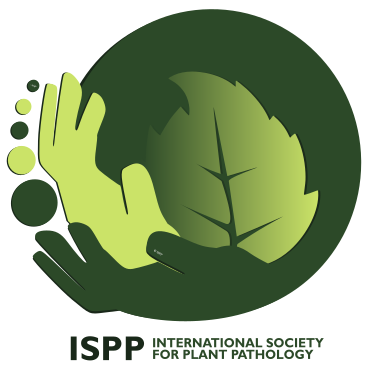|
Letter
Welcome to the
TASK FORCE ON GLOBAL FOOD SECURITY
You are invited to explore what the Task Force (TF) does,
its origins, its membership, and its plans for the future. Please read on and
follow the links:
The challenge
A public meeting at the 1998 International Congress of Plant Pathology in
Edinburgh set
the scene for discussion of Plant
Pathology and Global Food Security. Nobel Peace
Laureate Dr Norman Borlaug challenged ISPP to take action on food
security, recognizing the enormity of the problem and the significant
contribution to it made by the control of plant diseases.
ISPP’s response
ISPP’s response to Borlaug’s challenge was to establish a
Task Force on Global Food Security.
The Task Force, led by Dr Peter Scott and comprised of plant pathologists from
diverse backgrounds, convened in Bangkok in 1999. They decided to focus their
efforts on what ISPP could do to deliver tangible results with limited
resources: see their
Report which proposed five
Activities.
Back to top
FIVE ACTIVITIES OF THE TASK FORCE:
EARLY EXAMPLES, 1999-2005
1.
Changing Public Policy and Opinions on Global Food Security
Among policy makers, the public, and even farmers there is
often only limited awareness of the role of plant disease in food security. The
TF seeks opportunities to correct this. An early example occurred at the
First Asian
Conference on Plant Pathology (ACPP 2000) in Beijing, where the TF made a
presentation on
Biotechnology in food security and environmental protection, and convened a
Media Workshop
for journalists from India, Malaysia, and China. A
statement
endorsing agricultural biotechnology was endorsed by many participants.
Among
other early
initiatives designed to broaden awareness of plant diseases, the TF prepared
a submission
to the World Food Summit in Rome, 2002.
2.
Enhanced PhD training for plant
pathology in developing countries
A questionnaire study of postgraduate training for plant pathology in
developing countries was conducted by Dr Richard Strange. It confirmed that
declining funds in developed countries underlie the declining availability of
training - especially for students from developing countries. It was suggested
that a condition of an award should be that a student from developing countries
should work in his or her home country for at least 3 years after training in a
developed country.
3.
Quantification of the economic impact of
some major diseases
As an initial step towards this challenging goal, a review
was prepared by Dr Richard Strange and Dr Peter Scott on ‘Plant disease: a
threat to global food security’, published in
Annual Review of
Phytopathology
53, 83-116 (2005). It was concluded that
catastrophic plant diseases significantly exacerbate the current deficit of food
supply. At the political level the need is for plant diseases to be acknowledged
as a threat to food supplies and, in consequence, that there is a need for
adequate resources to be devoted to their control.
4.
Farmer training in simple disease management: pilot project
A competitive Challenge Programme in 2003 called
for project proposals to enable plant pathology to contribute to the challenge
of global food security. ISPP supported a project at the Crops Research
Institute, Kumasi, Ghana, led by Dr Emmanuel Moses. The purpose was to develop
appropriate strategies to control cassava diseases in Ghana, with an emphasis on
training a group of farmers to understand that disease limits their production,
and then to recognize and manage the diseases that affected their crops. This
aim was achieved, and the project delivered an illustrated booklet,
“Guide to Identification and Control of Cassava Diseases”, with descriptions
of all the major diseases of cassava that reduce yield in most parts of
Sub-Saharan Africa.
5.
Development of the ISPP Website
The website is being populated with a developing body of
information about: ISPP, plant pathology, why it is important, and what needs to
be done about it – including the activities of the ISPP Task Force on Global
Food Security.
Back to top
SOME KEY INITIATIVES OF THE TASK
FORCE, 2006-2013
Challenge Programme
Activity 4 (above) had been selected in a competitive
Challenge Programme,
which invited proposals that would
enable plant pathology to contribute to the challenge of global food security.
ISPP committed USD 50,000 over 3 years to support the programme.
The
project to train farmers in Ghana
was chosen from among five proposals.
Recognizing the value of the Challenge Programme, ISPP
committed a further USD 50,000 over 3 years to a
2007 Challenge. From
many proposals from 15 countries, a project led by Professor Lise Korsten of the
University of Pretoria was selected, addressing
Changing Public Perceptions and Opinions on Global Food
Security. Its
aims included establishment of a Food Security Information Hub to create
awareness of the importance of plant diseases in food security. For example, a
vehicle was converted into a Plant Pathology Science Information and
Demonstrative Laboratory, which travelled between schools and science festivals
in southern Africa to raise public awareness of food security issues. The
project delivered a
Report and a Video.
The Challenge Programme has,
in two specific contexts, delivered benefits to food security through raising
awareness of plant diseases and capacity to respond to them.
The TF proposes to develop the Programme
further, recognizing that new
funding must first be available.
A new international journal:
Food Security
In 2007, on behalf of ISPP, TF members Richard Strange and
Peter Scott progressed the project to develop a
new journal,
guided by an international
Advisory Board
of scientists, sociologists and economists who hold a
deep concern for the challenge of global food security, together with a vision
of the power of shared knowledge as a means of addressing that challenge.
Of six approaches to publishers made by the Advisory
Board, the one most positively received was to Springer. A
Publishing Agreement
between ISPP and Springer was signed in 2008:
- A new peer-reviewed journal, Food Security: The
Science, Sociology and Economics of Food Production and Access to Food,
would be launched in 2009, in print and online.
- Ownership of this official journal of ISPP
(responsible for content and editorial matters) is equally shared with
Springer (responsible for publishing, bearing all costs, paying royalties to
ISPP). After 15 years, ISPP has the right to acquire full ownership.
- Online access is normally free in developing
countries and substantially discounted to individual ISPP Members. There are
no page charges to authors.
The
aims and scope
of Food Security extend beyond plant
pathology, beyond plants, and beyond agriculture, to address the constraints -
physical, biological and socio-economic - which limit food production and access
to a healthy diet. It takes an overview of food security, with a broad
perspective over its many
component
disciplines.
The journal has been published, first quarterly and then
every 2 months, since 2009, with editorial control exercised for ISPP by an
Editor-in-Chief
and an Editorial
Board. Around 60 papers are accepted for publication each year (the number
is increasing), from more than twice this number of scripts submitted. The
journal has a substantial and improving
Impact Factor, currently
above 2.0. The journal
flyer is available.
The Editor-in-Chief publishes
Alerts for Policy Makers each year, based on the papers published. These are
illustrative of the potential influence of the journal in its aim to address the
constraints that limit global food security.
ICPP Congress sessions on plant
pathology and food security
The TF has organized sessions on plant pathology and food
security at the International Congresses of Plant Pathology in
Christchurch (2003),
Torino
(2008) and Beijing (2013),
in collaboration with the national Organizing Committees. Plans are in hand for
the Congress in Boston (2018).
Back to top
PLANNING FOR 2014 AND BEYOND
At their
2013 meeting
TF members proposed that the five “Activities” need to be refreshed, as part of
a review of the future vision and aims of the TF, to be undertaken with ISPP
Executive Committee.
Membership of the TF is informal and open to anyone willing to cooperate
in furthering its aims. A
list of current members is published. Meetings of the TF are mostly
informal, by email or Skype;
round-table meetings
are arranged as opportunities arise.
All
those with an interest in plant disease as a constraint to global food security
are warmly invited to submit suggestions for the future of the TF to the Chair,
Professor Lise Korsten, University of Pretoria, indicating whether they also wish to be invited
to become TF members.
Back to World
Population Clock
| 


